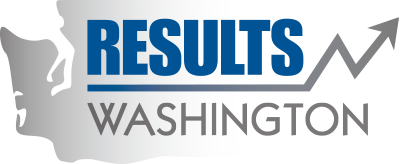Archived: Individual fishing and hunting licenses issued
As state government’s principal steward of fish and wildlife resources, the Washington Department of Fish and Wildlife (WDFW) directly and indirectly supports more than $4.5 billion in economic activity each year and directly supports more than 60,000 jobs across the state. Only 16 percent of the WDFW operating budget comes from the state general fund, close to 40 percent is derived from user fees – mostly from the sale of fishing and hunting licenses. The remainder of the revenue comes from local or federal sources. Two important federal sources are from excise taxes on sporting equipment that are re-distributed back to the states. Increasing the participation in fishing and hunting by Washingtonians will be essential for a sustainable future for WDFW.
Increases have been documented for both hunting and fishing license buyers. Some of that increase may be the result of diminished buyer resistance following license fee increases in 2010 and 2011, but most of the increase is likely the result of improved fishing opportunities. In 2013, the salmon fishing opportunities were very good and fishers took advantage of the opportunity. In addition, WDFW has been expanding marketing efforts to let people know about hunting and fishing opportunities in Washington and how to take advantage of them.
- We are continuing marketing efforts and developing combined licenses to further encourage participation.
- We have expanded our recreational access programs to enhance public access to private lands including the development of a reservation system for hunters to book access to quality hunting opportunities.
- Both deer and elk populations are increasing across the state as a result of a series of mild winters; conservative antlerless seasons; and improved management of human/wildlife conflicts.
- Implementing a summer recreation marketing campaign to increase participation of campers and boaters in fishing.
- Promoting fishing events through social media to increase retention of anglers.
- Enhancing the “Fish Washington” website to attract new anglers by simplifying access to fishing information and techniques.
- Review the agency web site (http://wdfw.wa.gov/) for opportunities and spread the word to other outdoor enthusiasts.
- Keep tabs on the hunting prospects and “Fish Washington” web sites prior to important season openings or announcements.
- If you are an experienced angler or hunter, take someone outdoors and teach them your skills.
- Consider becoming a hunter education instructor: http://wdfw.wa.gov/hunting/huntered/become_instructor.html
